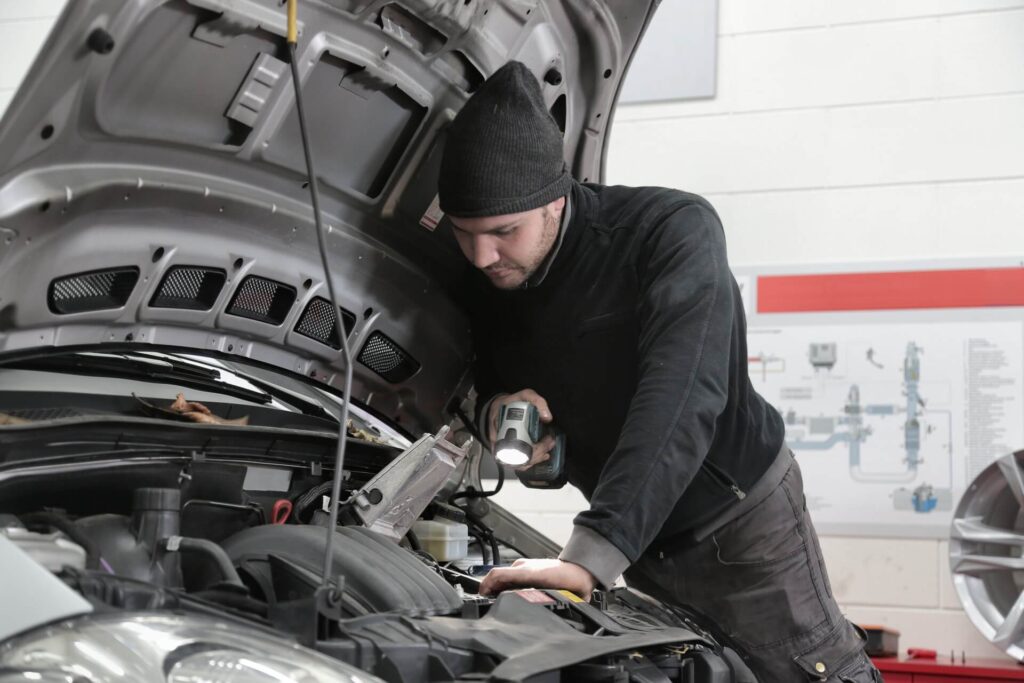Owning a vehicle is a significant investment, and keeping it running smoothly for as long as possible is a priority for many drivers. Regular maintenance is the key to extending the life of your vehicle, improving its performance, and avoiding costly repairs. With a few simple steps, you can ensure that your car stays in top condition for years to come. Here’s how regular maintenance can help extend the life of your vehicle:
1. Follow the Manufacturer’s Maintenance Schedule
Every vehicle comes with a manufacturer-recommended maintenance schedule, which outlines when specific services should be performed. Following this schedule is one of the best ways to ensure that your car remains in good shape. These schedules include regular checks for oil changes, brake inspections, fluid levels, tire rotations, and more. Sticking to these guidelines can help catch minor issues before they turn into major problems.
2. Change Your Oil Regularly
One of the most essential maintenance tasks for your vehicle is regular oil changes. Oil lubricates the engine’s moving parts, preventing friction and wear. Over time, oil breaks down and becomes less effective, so changing it regularly is crucial for engine health. Typically, you should change the oil every 3,000 to 5,000 miles, depending on the type of oil and the manufacturer’s recommendations. Clean oil helps your engine run more efficiently and extends its lifespan.
3. Keep Your Tires in Good Condition
Tires are one of the most important components of your vehicle, and maintaining them properly can significantly impact your car’s performance and lifespan. Regularly check your tire pressure, as underinflated tires can wear out faster and reduce fuel efficiency. Also, rotating your tires every 6,000 to 8,000 miles ensures even wear, which helps extend their life. Don’t forget to inspect your tires for any signs of damage or bald spots and replace them when necessary to avoid safety risks.
4. Maintain Your Brakes
Your car’s braking system is vital for your safety and the longevity of your vehicle. Regular brake inspections will help identify any issues early, such as worn-out brake pads or low brake fluid. Neglecting brake maintenance can lead to more significant problems, including costly repairs to the brake rotors. To keep your brakes in top condition, have them checked every 12,000 to 15,000 miles or whenever you notice any unusual sounds or decreased performance.
5. Check and Replace Air Filters
Air filters play a crucial role in keeping dirt, debris, and contaminants out of your engine. A clogged air filter can reduce engine efficiency, decrease fuel economy, and lead to engine damage over time. Checking and replacing the air filter regularly (usually every 12,000 to 15,000 miles) helps maintain optimal engine performance and can even improve gas mileage.
6. Inspect Fluid Levels Regularly
Your vehicle uses various fluids to keep all its systems running smoothly, including engine oil, coolant, brake fluid, transmission fluid, and power steering fluid. Low or dirty fluids can cause severe damage to your car’s engine and other vital components. Regularly check fluid levels and top them off when needed. If you notice any leaks, it’s important to get them addressed promptly to avoid long-term damage.
7. Maintain the Battery
A healthy battery is crucial for starting your vehicle and powering its electrical systems. Over time, batteries can lose charge and develop corrosion on the terminals. Regularly cleaning the battery terminals and checking the battery’s charge can prevent sudden failures. Most car batteries last between three to five years, so it’s a good idea to have your battery tested annually after the three-year mark.
8. Inspect Belts and Hoses
Belts and hoses are essential for your car’s engine to function properly. They transport coolant, power steering fluid, and fuel while also running components like the alternator. Over time, belts can crack and hoses can leak, leading to potential engine failure. Regularly inspecting these parts and replacing them when they show signs of wear can help prevent breakdowns and costly repairs.
9. Regularly Clean and Wash Your Vehicle
While this may seem like a cosmetic concern, keeping your vehicle clean is more than just about appearance. Dirt, salt, and road debris can build up on your car’s exterior, causing rust and corrosion. Washing your car regularly, especially in winter when road salt is more common, helps protect the paint and the undercarriage from damage. Cleaning the interior also helps maintain the overall condition of your vehicle and can make driving more enjoyable.
10. Listen to Your Car
Sometimes, the best way to extend the life of your vehicle is to pay attention to how it sounds and feels while driving. Strange noises, vibrations, or dashboard warning lights can be early signs of trouble. If you notice any unusual behavior, don’t ignore it. Addressing potential issues early can help you avoid bigger, more expensive problems down the road.
Conclusion
By performing regular maintenance on your vehicle, you can help extend its lifespan, improve its performance, and prevent costly repairs. From checking fluid levels to replacing worn-out tires, every small maintenance task adds up to a longer, healthier life for your car. By following these simple tips and staying on top of your car’s care, you’ll keep it running smoothly for years to come and get the most out of your investment.

